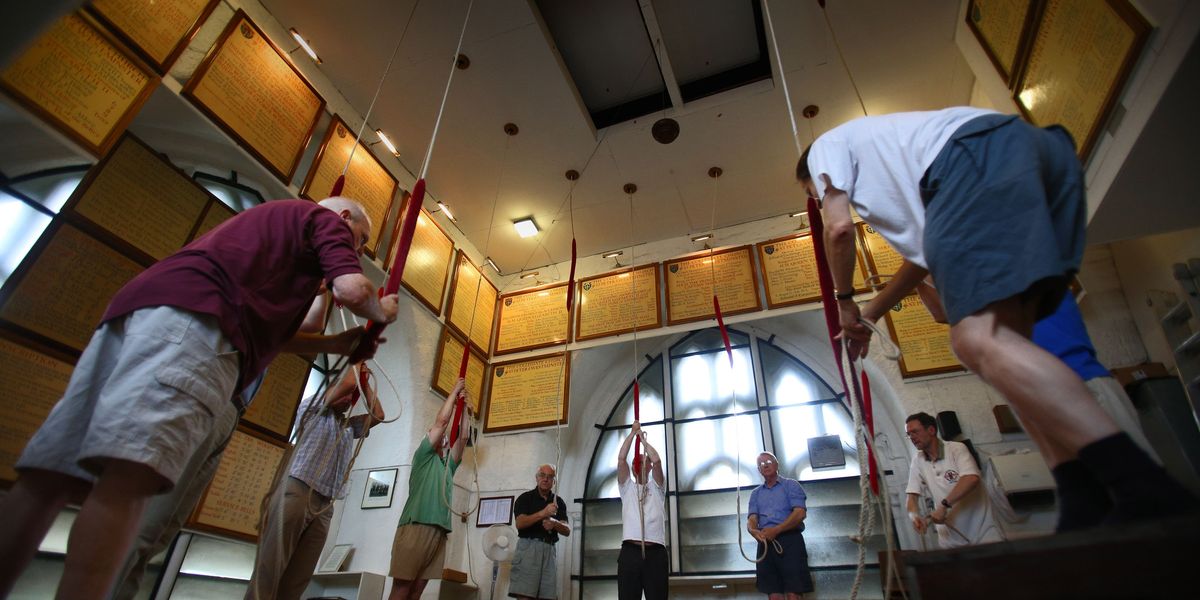The traditional sound of church bells ringing at Christmas could become a thing of the past, according to a stark warning from the Central Council of Church Bell Ringers.
A new report reveals that the number of bell ringers in the UK is expected to plummet by 45 per cent by 2047, putting the centuries-old tradition at risk.
The decline is largely attributed to falling church attendance, with fewer people coming through traditional recruitment channels such as church choirs and Scout groups.
The warning comes as the council calls for urgent action to attract more people to bell ringing, with particular emphasis on recruiting younger participants to preserve this festive tradition.
A warning has been issued over the tradition
PA
Currently, there are more than 5,000 ringable bell towers across the UK, supported by over 30,000 change ringers.
The traditional method of bell ringing in Britain involves pulling a rope that swings the bell through a complete 360-degree rotation to create its distinctive chime. However, the practice faces mounting challenges in maintaining its numbers.
Matthew Turner, 47, a bell ringer from Cardiff, describes it as a deeply social activity that creates strong bonds within the community.
“The ringing community across the UK and across the world really is really quite close,” he said. “You’ve got that kind of instant welcome wherever you go.”
LATEST DEVELOPMENTS
The number of ringers could decrease by 45 per cent by 2047
PA
Iwan Cotgreave, a 20-year-old student at Swansea University, is working to change perceptions about bell ringing.
“They have to try and break the perception of it being just old people that ring,” he said. “It being in a church also puts people off if they aren’t religious but anyone can come along and do it.”
Initiatives like ‘Ring for the King’ have proven successful in attracting newcomers to the tradition.
“These initiatives grab people’s attention and gets them to join,” said Matthew Turner, who teaches bell ringing in Cardiff. “We had more than a dozen join our branch for the initiative.”
Turner emphasises the special nature of Christmas bell ringing, noting: “People like to hear bells on Christmas morning. It’s that sense of tradition.”
Simon Linford, president of the Central Council of Church Bell Ringers, acknowledges that the problems facing bell ringing are well understood within the community.
He revealed that previous attempts to address the decline had fallen short. “The council set up a committee some years ago, called the Ringing Trends Committee who spent lots and lots of time looking at lots and lots of data and came up with the obvious that we need to recruit more young people, and then no-one did anything,” he said.
Linford points to his own experience as evidence of changing times. “When I learnt to ring, when I was 13 or 14, I came through the church, and I was in the choir,” he said. “Bell ringing recruitment didn’t have to look any further than the church and associated groups like the Scouts generated enough people.”
